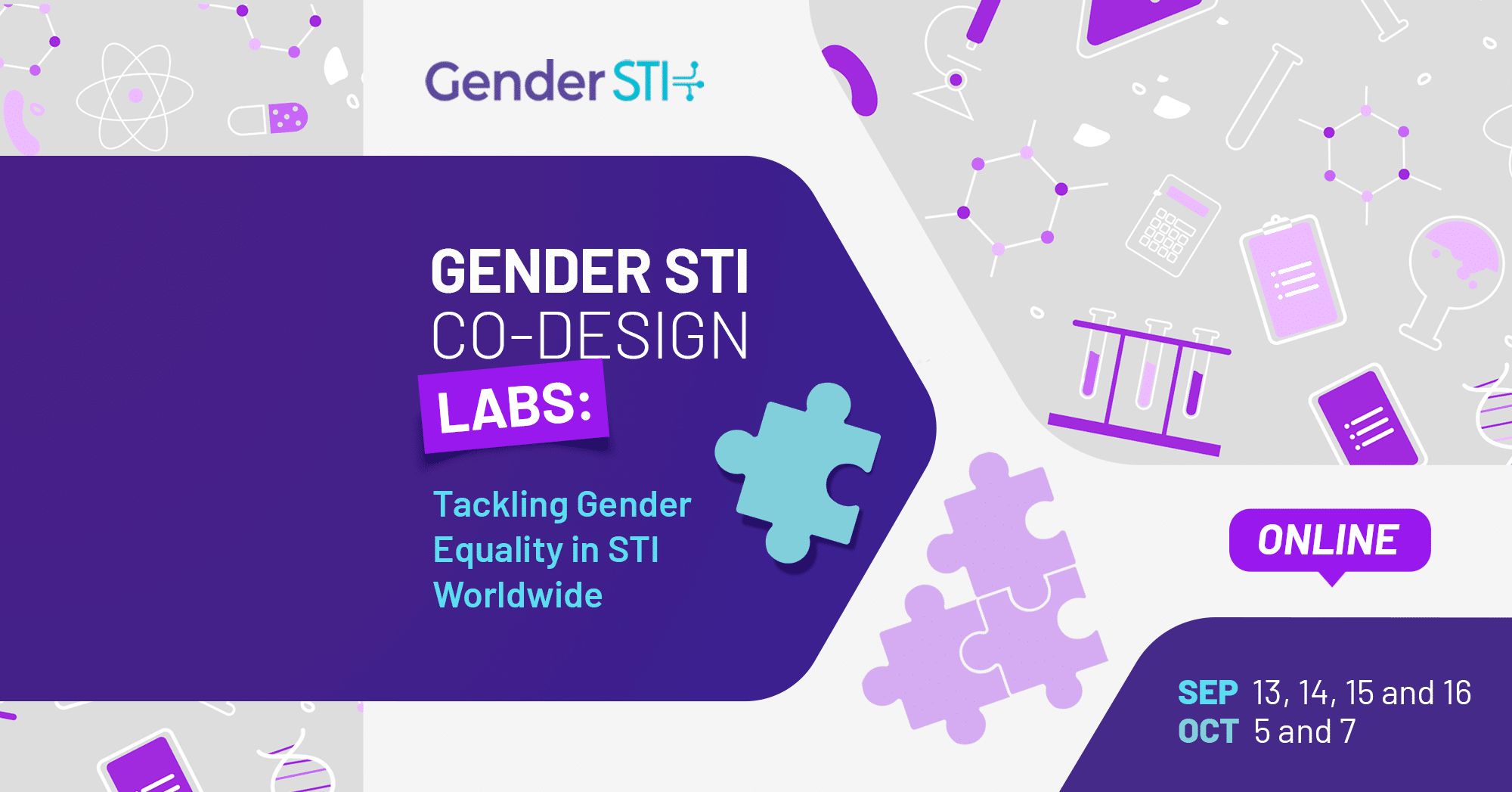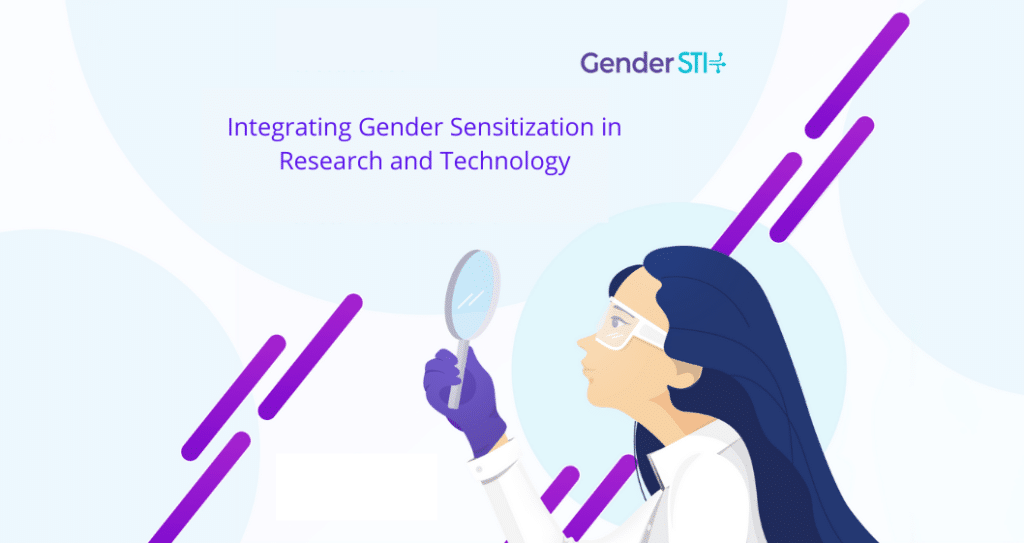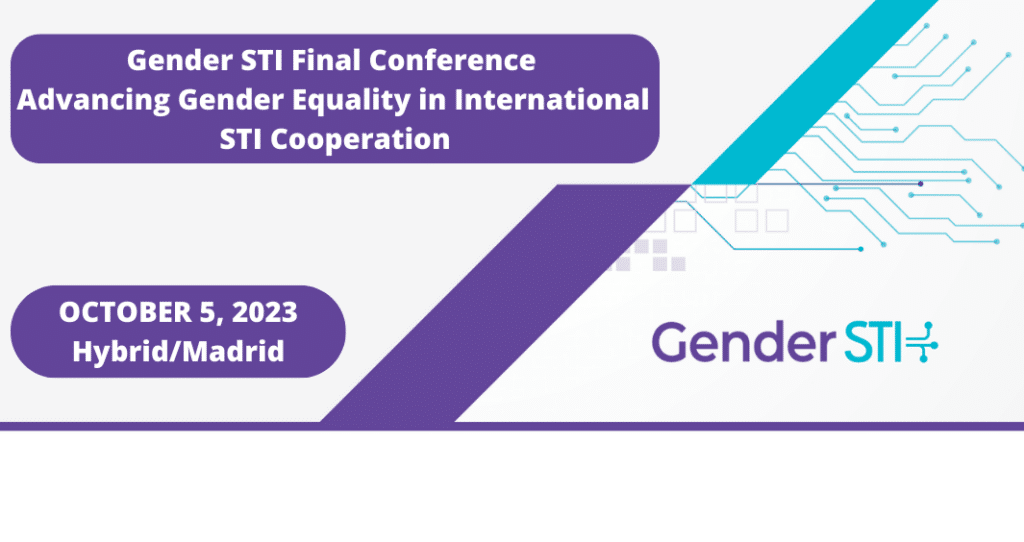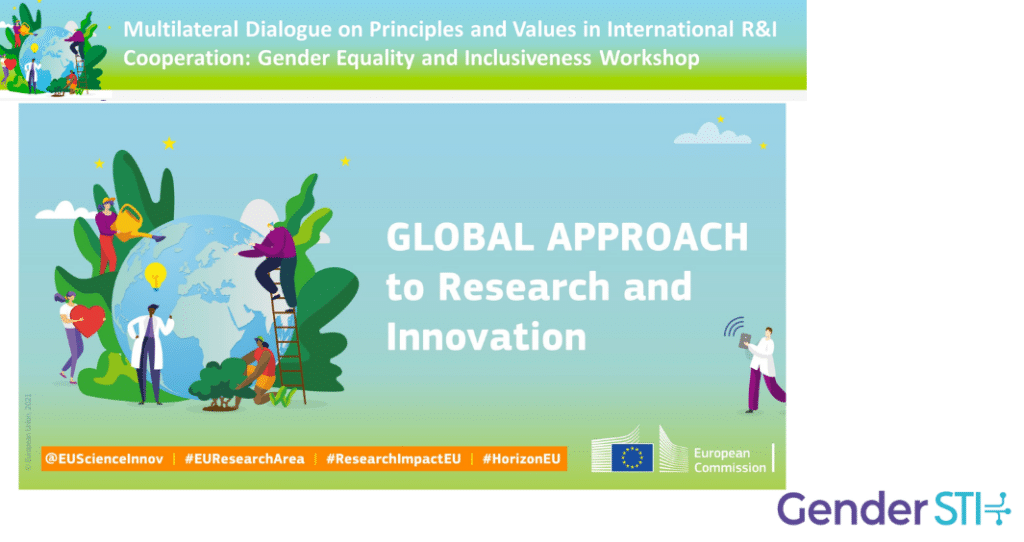Gender STI Co-Design Labs: Tackling Gender Equality in STI Worldwide
Draft Agenda
Co-design Labs for Participants from Asia, South Africa and Europe
Lab 1: Monday, 13 September 2021 from 9:00 to 12:00 CET
Lab 2: Tuesday, 14 September 2021 from 9:00 to 12:00 CET
Lab 3: Tuesday, 5 October 2021 from 9:00 to 12:00 CET
The Co-Design Labs
Gender STI’s Co-Design Labs, which will include participants from 16 countries across four continents, focus on three of the forefront challenges facing women in science, technology and innovation (STI): gender equality in scientific careers, gender balance in decision-making bodies and positions and the integration of the gender dimension in research and innovation content.
The Labs aim to identify the key issues in these areas and develop potential solutions using design thinking and online facilitated processes. Participants will discuss opportunities in their country or institution; and co-design potential solutions that can be implemented to foment greater equality in these areas in the weeks, months and years ahead.
Input from participants in each challenge will contribute to a roadmap with recommendations that will be presented to the European Commission and shared with other decision makers from different countries interested in gender equality. All participants will be included as contributors to this roadmap, which will also be featured in the project’s European Observatory on Gender in STI.
Challenges to be Addressed
- Challenge 1 – Gender equality in scientific careers at all levels: Women are underrepresented in scientific careers, which can lead to a gender imbalance on research teams. How can we increase the participation of women in order to close these gaps and improve gender equality in scientific careers at all levels?
- Challenge 2 – Gender balance in decision-making bodies and positions: Women are underrepresented in decision-making processes and positions in areas, such as politics, STI advisory groups and business. How can we engage all groups involved, including governments, funding organizations, universities and businesses, to tackle traditional gender roles and stereotypes? How can we strengthen the support for women to balance their work and personal life and the problems in political and corporate cultures?
- Challenge 3 – Integration of the gender dimension in research and innovation content: Women and men are not the same: they have different needs, behaviors and attitudes. However, this is often not reflected in scientific research. Integrating the gender dimension in R&I content helps improve the scientific quality and societal relevance of the produced knowledge, technology and innovation. What concrete steps can we take to integrate the gender dimension in research and innovation content?
Lab 1 Schedule – Monday, 13 September: 9:00 – 12:00 CET
Main Goal: Opening, meet and greet. Join the challenge group. Explore the challenges.
– Plenary introduction. Organizers will describe the Gender STI challenges and introduce the lab method and schedule.
– Meeting the groups. The participants break out into three challenge groups.
– Exploring challenges and opportunities. Deepen understanding.
– Plenary closing and next steps. Talk about what’s expected in lab 2 on the next day.
- Asynchronous assignment: Explore the opportunities and generate the first ideas (over 24 hours).
Lab 2 Schedule – Tuesday, 14 September: 9:00 – 12:00 CET
Main goal: Deepen understanding on ideas and opportunities. Build initial prototypes. Revisit opportunities.
– Plenary opening and check-in. Introduce the aim of the day’s session and schedule.
– Focused reflection. Feedback on the opportunities and new ideas.
– Build initial prototypes. Converge ideas to create initial prototypes emerging from the reflection on the challenges, ideas and opportunities.
– Feed forward instructions to work asynchronously in Basecamp and collaborative tools. Roadmapping the next 6 weeks, 6 months and 6 years.
– Plenary wrap-up of lab 2. Introduction to the next steps.
- Asynchronous assignment: Prototype improvement, building and testing. Thinking forward (over 2 weeks).
Lab 3 Schedule – Tuesday, 5 October: 9:00 – 12:00 CET
Main goal: Roadmap finalization and presentation of proposals
– Plenary opening and check-in. Introduce the aim of the day’s session and schedule.
– Alignment in groups to fine tune the presentations of the proposals. Groups that have worked asynchronously share briefly their findings and decide how to present them.
– Plenary presentation of the proposals in a roadmap. Proposals of prototypes are presented indicating a roadmap of activities.
– Challenge groups reflect and renew on what we have learned. Participants reflect on the prototypes and on the lessons learned.
– Plenary launch of the GO, NO-GO prototyping phase. Discuss the asynchronous prototype implementation.
– Concluding plenary. The ways forward to prototyping on location.



